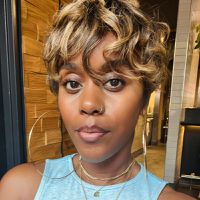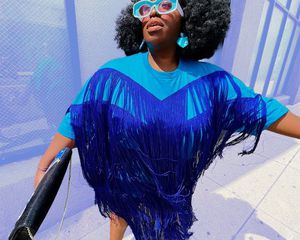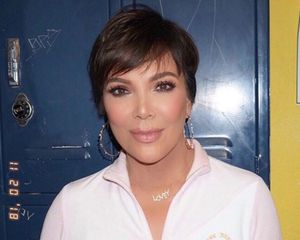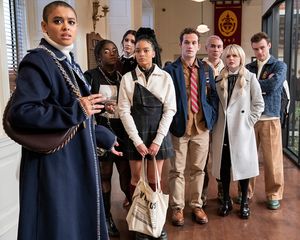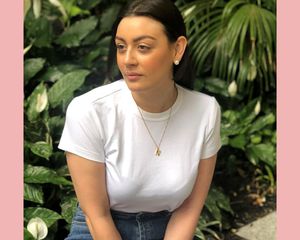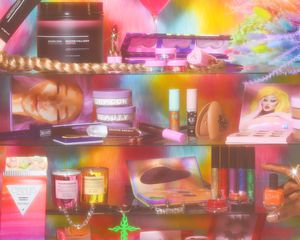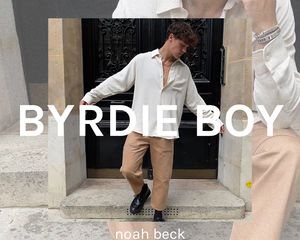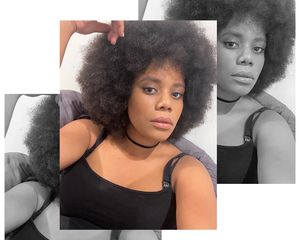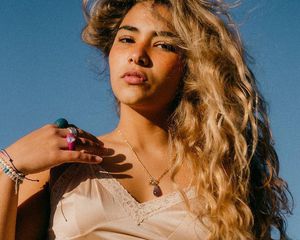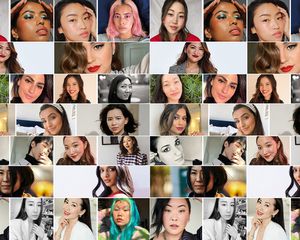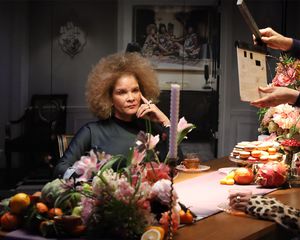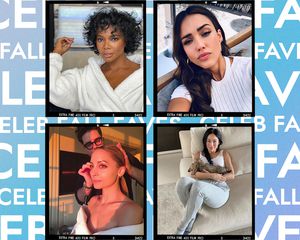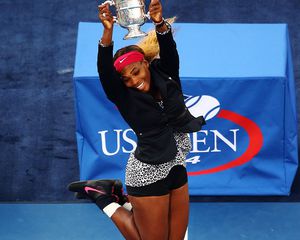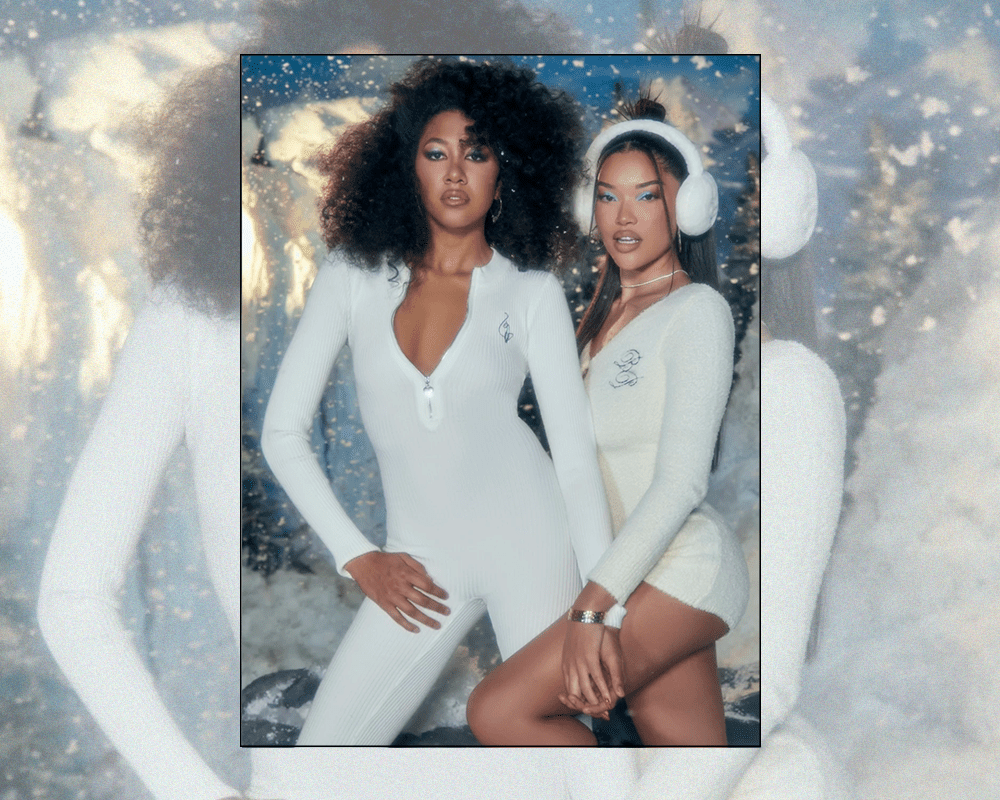
Baby Phat / Design by Tiana Crispino
Welcome to Byrdie's new series, Next Gen, where we profile Gen Z celebrities, influencers, and entrepreneurs. As a collective, members of Gen Z are dynamic trendsetters and culture shifters. And when it comes to beauty and wellness, they have ushered more creativity, inclusivity, and transparency into the industry. In this column, we're stepping into the minds of some of the most notable Gen Z'ers to learn more about how they are redefining beauty, the products they swear by, and their plans for the future.
Streetwear has heavily shaped the fashion industry. Brands like Sean John, FUBU, Rocawear, and Karl Kani bridged the gap between the hood and the runway in legendary ways. However, it is impossible to talk about streetwear without mentioning Phat Farm and Baby Phat. The latter and its CEO, Kimora Lee Simmons, became an undeniable part of the golden age of street style.
The Baby Phat brand provided round-the-way girls with luxurious, glamorous pieces that felt true to them. But more than velour suits and puffer jackets, Baby Phat represented possibility. It showed girls in urban areas they belonged everywhere, from the stoops of New York to the runways of Milan. And though fashion figureheads tried to keep streetwear on the outskirts of the industry (while "borrowing" from its originality), its influence has continued to grow worldwide.
Today, one scroll through social media proves the lasting power of street style. As we've watched it mature, we've also seen how new generations have come to appreciate the styles and brands previous generations helped popularize. So, it should be no surprise that Kimora Lee Simmons has entrusted part of the resurgence of her legendary brand to her daughters Ming, 22, and Aoki, 20.
After chatting with the duo, it's clear Baby Phat is in great hands. Ming and Aoki are passionate, ambitious, and willing to have tough conversations. Ahead, the Simmons sisters open up about shaping the next generation of Baby Phat, the brand's new winter collection with Forever 21, and their bond as sisters.
Let's talk about the new Forever 21 x Baby Phat collection. What can we expect from the collection? Which pieces are you most excited about?
Aoki: It's a lot cozier than our last collection with them. There are mini skirts, and I am a big fan of those in the winter with boots and tights. There are also zip-up onesies and ski suits.
Ming: This collection is more fashionable than before. Last time, we had tank tops and biker shorts. This time, we have full outfits. The embroidered cats on this collection make it look luxe. My favorite is this puffy pink jacket with monogrammed cats and poms-poms on the strings. It's really cute.
What have you learned from watching the success of Baby Phat?
Ming: Something we learned from our mom is that you have to know everything to have a successful business. You can't just know design or marketing. Something that's interesting about Aoki and I working together is that we go to school for very different things. We do things differently when it comes to design and picking collaborations. But we both bring things to the table that complete the whole process.
Aoki: I learned to have a holistic view of the business. When it's something you have a personal generational stake in, you have to show up for yourself just as much as you'd show up for a different fashion client. It's even more important because it's been built for you, and you're not building it for someone else. There's a new level of dedication because you'd be letting yourself and your family down. I treat it even more seriously.
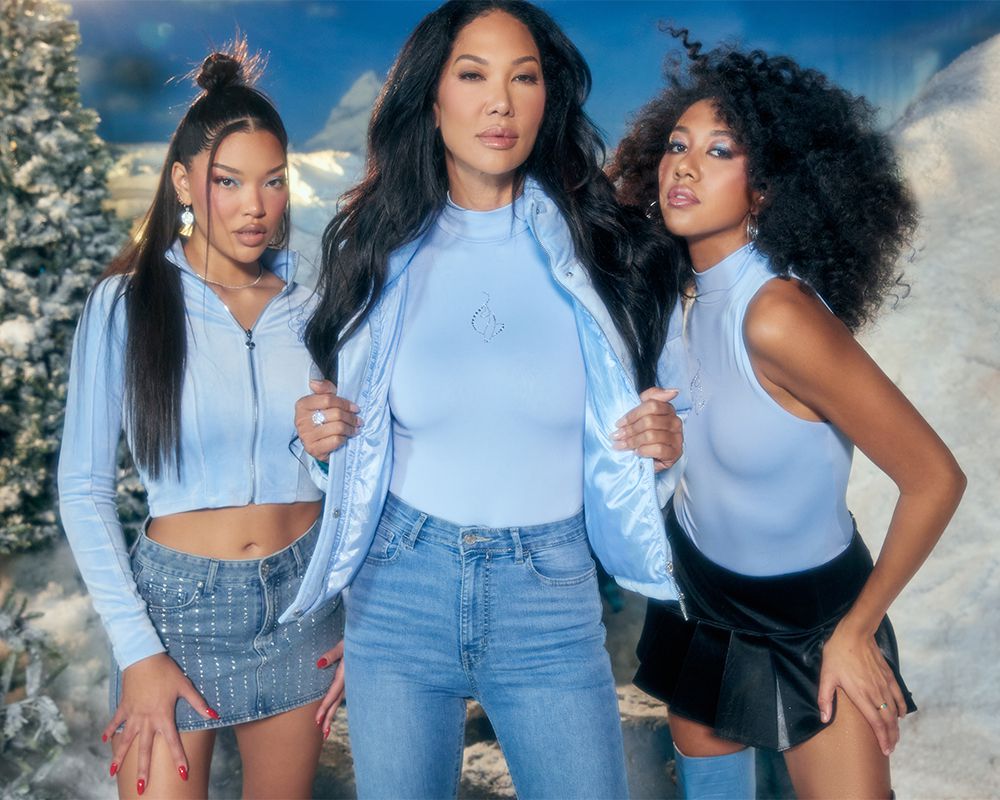
Forever 21
How does it feel to be trusted by your mother, the Kimora Lee Simmons, to helm parts of Baby Phat?
Aoki: I don't know that we have that much trust. [Laughs] I feel fact-checked frequently. But we appreciate her feedback because she gives equal feedback to the team when things are not up to par. She's very upfront. It's great when she approves something we've contributed because it's genuine. If she likes the idea, it comes from a business mindset rather than liking it because we're her daughters.
Ming: Yeah, she's not the Kimora Lee Simmons to us. She's our mom. There's not a lot of anxiety around bringing her things because she treats them like anything else in our life. We work as a team, and it's fun.
You grew up at the intersection of pretty and economic privilege, but it seems to have made you more compassionate and aware of bigger social issues. What do you attribute that awareness to?
Ming: Our parents. Growing up, they always told us if god gives you something, you have to give back. Recognize what you have in life and recognize that it makes you responsible for helping people other than yourself.
Aoki: Our parents come from very different backgrounds from where we grew up. They always talk to us about where they're from versus where we're from. They remind us to give back and know how close we are to these issues. We're not fully removed from these things just because we've been blessed. They're still our responsibility too. You want to live an interconnected life. You don't want to live in a castle of privilege and delusion.
Aoki, you use your platform to confront a lot of heavy topics. How do you handle that?
I feel compelled to speak up and use my platform. It just wells up inside of me if I think there's something that's not being discussed. As much as I may feel that the backlash was tough, I'll continue to do it. It's more of a spontaneous thing that I hope to guide a little more. People ask what the strategy and end goal are, and I don't know. I want to see how my voice can be a bit more constructed as opposed to just waking up and saying, "Good morning, there are problems in the world." It's really important to me, though. I enjoy being able to make that kind of impact, even if it's not the perfect Ted Talk.

Forever 21
Ming, you are an "it" girl. What does having "it" mean to you?
It's interesting you say "it" because I don't know if it's that or if I'm giving off a false sense of security. I'm still trying to find myself. I'm in college, and I take a lot of advice from my mom and sister. The last thing you mentioned about Aoki is really important, even in my life as an "it" girl. She reminds me of what is important outside of sitting on social media being pretty. If I'm an "it" girl, it's a facade, and that's the thing to remember. Anyone can be an "it" girl if you act like you are.
As sisters, how do you protect your bond and one another? Is it hard to have the same career path?
Ming: My sister and I just got into a fight last night.
Aoki: Now, why would you say that?
Ming: Because it's important when talking about sisterhood. It's not always perfect. Growing up, I've gotten myself into many issues on social media and in real life. My sister has always been there for me. She protects me and goes to bat for me. It's not hard to have the same career path because even though we get into fights, I realize she's always trying to protect me.
Aoki: That was sweet. I didn't expect you to be that honest. I thought we'd say, "Everything is perfect, and we have no problems." I'm probably the more aggressive one in our sisterhood. I like to use that for good because Ming has a sweet heart, and people like to start stuff with her. I like to defend her because even though she has that "it" girl style, she's a complete softie. When it comes to protecting our sisterhood, we talk all the time. Our communication is great, whether in a tiff or everything is going well. Staying in contact with your family is so important.
Gen Z is sometimes misunderstood and unfairly criticized. What do you love about being part of this generation?
Aoki: That's true. My generation is great because we have a lot of self-confidence. We don't think we're too young to speak on anything. Gen Z is a group of people who believes in their innate abilities. We believe we can start things and change things at whatever age. As long as you have your phone, you can begin your business or your movement. It's a very dynamic generation, and I like seeing all the great things that come out of it.
Ming: I agree with Aoki.
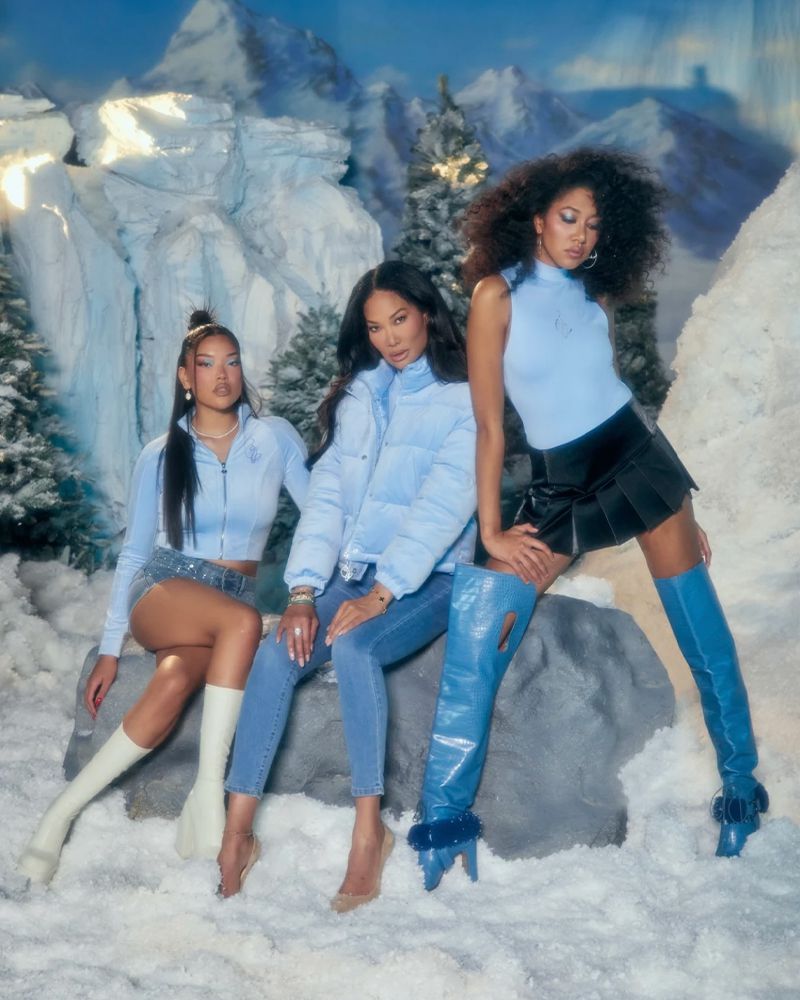
Forever 21
How do you each define legacy?
Ming: Legacy is defined by what you leave behind but not in the sense of material things. It's the knowledge you leave behind and the path you leave behind. It's how you're able to impact other people.
Aoki: I study material culture and museum works. For example, I’m writing a paper right now on Issey Miyake and the legacy of one garment. So, a legacy is an idea and iteration of ideas. It can be cultural, or it can be from your family. But, it's about the material things that anchor you to a concept people are excited to carry on, change, or honor. It's an ongoing and growing thing.
This interview has been edited and condensed for clarity.
